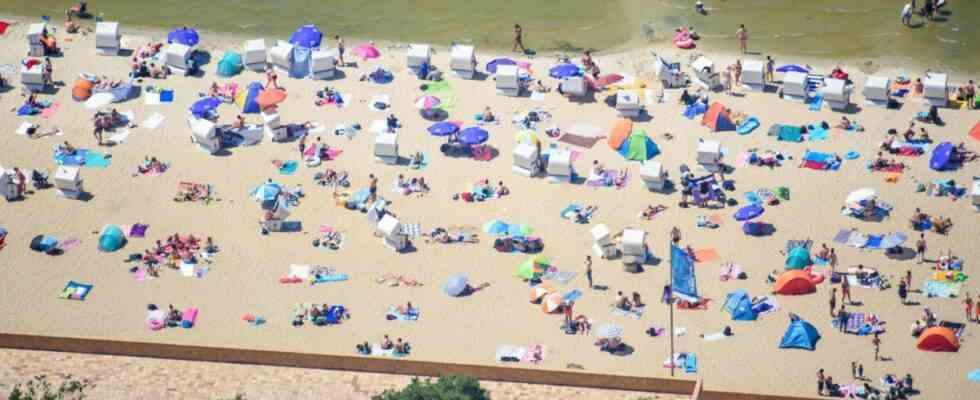Paradise, if there is one, has a name: Strandbad Wannsee. Here, at least in the 1950s, everything was in order. The water, only plowed up by a few motorboats belonging to the nouveau riche, “sloshed sluggishly onto the shore, which was always lined with dazzling white sand. Far away, the sailing boats twinkled like distant dreams, and sometimes one of the steamers of the so-called Wannsee fleet passed with a smoking chimney. ” Every rowing and paddling boat that strayed here was quickly “surrounded and instructed” by a white-liveried lifeguard. Otherwise, everything that was “terrible, chaotic, compulsive” in everyday life in Berlin at the time “purred together here to form a single moving social sculpture, in which people ate popsicles and drank fizzy drinks, and those who had little money brought their fizzy powder cubes and threw them like them put her teeth in a glass of water”.
The Wannsee lido shines in Michael Krüger’s memory; and it offers the Munich-based writer and ex-publisher who is now obviously moving back to Berlin at the age of 79, some material to tell at all. And so Krüger paddles in his booklet “Das Strandbad”, which he wrote for Edition 5plus and enriched with private photos, from the unusually white Wannsee sand into autobiographical realms. This is enlightening in every respect – in a light, ironically rough tone, without throwing the seriousness overboard, says the restless writer (the story “What happened in the two weeks after returning from Paris” was only recently published by Suhrkamp ) from his childhood and youth in Berlin.
Everyday life – not always just an ice cream lick
Krüger’s everyday life in an educated middle-class family was – quite apart from the post-war need for discount stamps and the daily cooking cheese on school bread – not always just an ice lick: For example, the Sunday paddle tours with the sporty father on the Wannsee were dreaded. The forced excursions were difficult because Krüger’s father tormented his children in the middle of the lake with questions about the situation in Beijing or Wallenstein’s strategy. Anyone who couldn’t answer got “a torrent of water over their heads. Not out of bad faith, but out of disappointment.”
In this booklet, on a shaky background, you not only learn a lot about this father, post-assessor and incidentally the misjudged inventor of the electric toothbrush. But also about the rest of the family and (reading) socialization of the young Michael Krüger, who originally wanted to be a farmer and then devoted himself to books so much that, to the chagrin of his mother, he preferred to take the money for the dance lesson to the antiquarian bookshop. The fact that Krüger moved in artist circles early on makes this autobiographical sketch an interesting document of the former Berlin scene. However, the most important thing, the “radiant center of the world”, remains the Wannsee lido.
Michael Krüger: The lido (110 p., 16.80 euros, limited edition, only via the Edition 5plus bookstores to acquire). Reading: Thursday, July 14, 8 p.m., Lehmkuhl bookstore, Leopoldstr. 45, registration at phone 3801500

